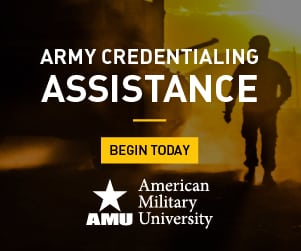By Dr. Robert “Smitty” Smith
Faculty Member at American Military University
It is easy for our nation to go to war, as there seems to be few legal restraints that prevent our military from being deployed across the globe. Those of us who have served in the military understand that this reality is just part of the contract we signed up for—it is our duty. However, there is another part of this contract that hasn’t received the attention it deserves: That our nation will take care of us. Recent enrollment horror stories involving extremely long wait times, secret waiting lists, 30-year-old software programs, and unauthorized appointment scheduling at the U.S. Department of Veterans Affairs (VA) demonstrates that it’s easier to send us into harm’s way than it is to honor the commitment to care for us.
By Jennifer Bucholtz
Criminal Justice Faculty at American Military University
Traumatic Brain Injuries (TBIs) are considered the “invisible injury” of our men and women engaged in operations in Iraq and Afghanistan. Though the physical damage that results from a TBI is not always apparent, the manifestation of other side effects is quite obvious. Unfortunately, countless military members who suffer one or more TBIs, while in combat, return stateside a distant variation of their former selves. Some, having been previously law-abiding citizens, turn to criminal behavior upon their return.
By Richard Pera
Dean of the School of Security and Global Studies at American Military University
Major news organizations like CNN and Fox News recently reported the story of the venerable aircraft carrier, USS Saratoga (CV-60) (known affectionately as “Sara”), which the U.S. Navy sold to ESCO Marine, a scrap metal and recycling company, for one cent.
There are more than 100 sightings or close calls between aircraft and drones every month. Pilots of both planes and drones are lucky that, to date, there hasn’t been a midair collision. AMU faculty member Anthony Galante, who is also a trained airline pilot and the director of training for the Unmanned Safety Institute, discusses why drones make him nervous every time he flies. Read more about the government’s effort to regulate recreational drones and some of the specifics that still must be answered to keep the nation’s airspace safe.
Department of Defense installations across the U.S. will no longer accept driver’s licenses from five states deemed non-compliant with the REAL ID Act.
Academic culture, at its core, is based on intellectual curiosity and pursuit of the unknown. In a university setting, such curiosity is fulfilled by conducting academic research. While many people often think of faculty members as being primary researchers, it is often the contributions of students that make research projects possible. Two AMU program directors write about the various opportunities students and faculty members have to participate in research as well as the benefits of collaborative research. What research project will you take on next?
Approximately 170 guests may have been taken hostage, according to CNN’s Mali hotel attack report, and that there are no more hostages inside the hotel.
One of the most interesting facts about the terrorist attacks in Paris is that a pair of brothers was involved. For the intelligence analyst, understanding family connections in a terror group is critical. Counterterror analysts go to great lengths to understand the organization of terrorist and extremist groups in an effort to profile and predict their operations. AMU’s Erik Kleinsmith, a former Army Intelligence Officer, discusses how the appearance of brothers and other family members within a terror organization can provide counterterrorism analysts with potential patterns and trends that require further analysis. Here are seven things to consider.
Dr. Randall Hanifen
The higher you ascend in the fire service, the less hands-on training you will utilize and the more you will rely upon business education that is centered around the fire service. One of the best ways to get this training is by joining professional associations.
